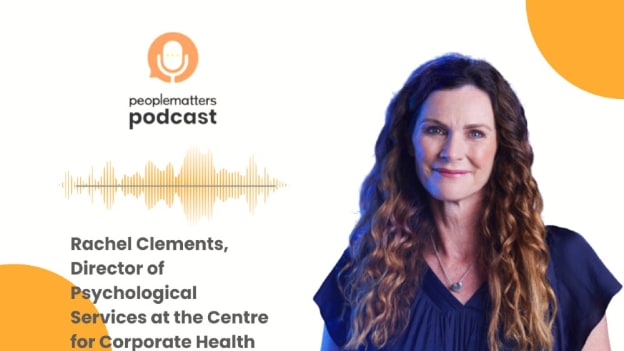Are your employees ready to come back to office?

In an episode of the People Matters Podcast, Rachel Clements, Director of Psychological Services at the Centre for Corporate Health (CFCH) shared her thoughts on scenarios of mental health issues being faced by both the leaders and employees, and also the fate of the same in the long run.
Rachel is a psychologist and workplace mental health expert. She also Co-founded CFCH which recently launched a whitepaper ‘How to improve employee mental health and enterprise wellbeing in a post-pandemic world’ today.
Talking about the effects of suddenness which the global workforce has already witnssed, Rachel said, "We see a return to the office which is wonderful but it needs to be gradual because we have definitely seen situations where it takes time to get into a new rhythm. There are increasing concerns over the anxiety of people about returning to an office that perhaps they have not been in for the last couple of years."
According to her, the 5-days-a-week office period is over and people seek flexible hybrid or remote work. Today organisations need to be much more agile and they are already working on various things in this space. Some employers want to see their employees 60% of the time at the office while employees can choose remote or onsite work for the rest of 40% of the time.
In order to remain competitive in this talent short market, and to retain desired talent on board, team engagement, and great well-being needs to be ensured which calls for some level of flexibility. Answering your question, the majority of the employees and job seekers prioritise that flexibility today. HR professionals are really trying to meet those needs to be able to adapt and adjust. People have been more efficient and effective in the remote workforce as they did not have to invest energy and time on the commute.
People have had to step back from that management style and measure much more of the output that is generated and that's certainly a leading indicator of how productive people are when they may be working remotely. So it's quite a different mindset to be adjusted. But with this mindset, people also started facing burnout as they were using the commute time to work a little more. So they had difficulties switching off and that concept of extreme fatigue and burnout is one of the unintentional consequences that we're seeing as well of people working remotely full time.
To listen to the full episode, click on the 'Play' button below:












